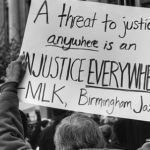More than five dozen Christians remain in Thailand, where they fear deportation to China unless they are granted refugee status by the United Nations or humanitarian parole by the United States.
In early January, Trent Martin from 21Wilberforce—a human rights organization focused on international religious freedom— and a colleague worshipped with members of the Shezhen Holy Reformed Church in Thailand.
“Pastor Pan Yongguang and the members of the church were there to greet us. We had the opportunity to join them for a moving Sunday morning worship service,” Martin wrote in a Jan. 30 email. “As the congregation joyfully sang Chinese hymns and recited Scripture, we saw first-hand the strong conviction to remain faithful to Christ that had brought them on this journey.
“Pastor Pan shared a sermon on maintaining our faith and joy in the midst of trials and suffering. While I had heard these verses many times before, it was exponentially more impactful to hear them in a community that really knew the meaning of suffering for their faith.”
Members of the church fled their homeland after enduring repeated threats and interrogation by the Chinese police. After being denied asylum in South Korea, they relocated to Thailand on tourist visas.
However, the Thai government has refused to renew their visas, and the Chinese Christians— nicknamed the “Mayflower Church” for their commitment to seeking religious freedom—face deportation.
After the worship service, Martin shared a meal with the church’s pastor and his family.
“We discussed what their new lives are like in Thailand and how they were currently educating all their children at home, something they could not do without government sanction in China,” he said.
“While several of the church members already speak English, many of them are looking for ways to strengthen their English skills in preparation to move to America. They also shared that while they were able to find work in South Korea, they currently haven’t been able to work in Thailand.”
Sign up for our weekly edition and get all our headlines in your inbox on Thursdays
Threatening calls, messages and pressure
Martin also learned about continued persecution the Christians have endured even after they fled China.
“It was surprising to hear firsthand the lengths to which China’s Communist Party is willing to go to silence a church that simply wants to peacefully worship God in a free land. While living in Jeju Island in South Korea, the congregants received threatening calls, messages and pressure from the CCP to return to China,” he said.
“Even while they are overseas in Thailand, they still fear the CCP will send agents to kidnap them or pressure the Thai authorities to deport them.”
In December, numerous pastors and religious leaders—including Elijah Brown, general secretary of the Baptist World Alliance, and Katie Frugé, director of Texas Baptists’ Christian Life Commission—signed a letter to congressional leaders, urging them to advocate for the persecuted Chinese Christians.
A group of Tyler-area churches have committed to sponsor their resettlement in the United States.
However, at this point, the U.S. government has not offered members of the Mayflower Church humanitarian parole or an expedited pathway to asylum.
“We are continuing to work with our congressional contacts to strongly advocate for the State Department to take action for the church,” Martin said.
He noted Christians in the United States can help members of the Mayflower Church by praying:
- For their security from deportation by Thai authorities and abduction by agents of the Chinese government.
- For the United Nations to allow them to enter its refugee program.
- For the United States government to offer humanitarian parole or a path to asylum.
On Jan. 5, President Joe Biden announced the United States is expanding the humanitarian parole process already in effect for Venezuela and Ukraine to allow up to 30,000 nationals per month from Nicaragua, Haiti and Cuba. However, persecuted religious minorities in China were not included.
“We are continuing to call on the U.S. State Department to maintain our proud tradition of being a refuge for those seeking freedom to worship, just as the first Pilgrims did in 1620,” Martin said.














We seek to connect God’s story and God’s people around the world. To learn more about God’s story, click here.
Send comments and feedback to Eric Black, our editor. For comments to be published, please specify “letter to the editor.” Maximum length for publication is 300 words.